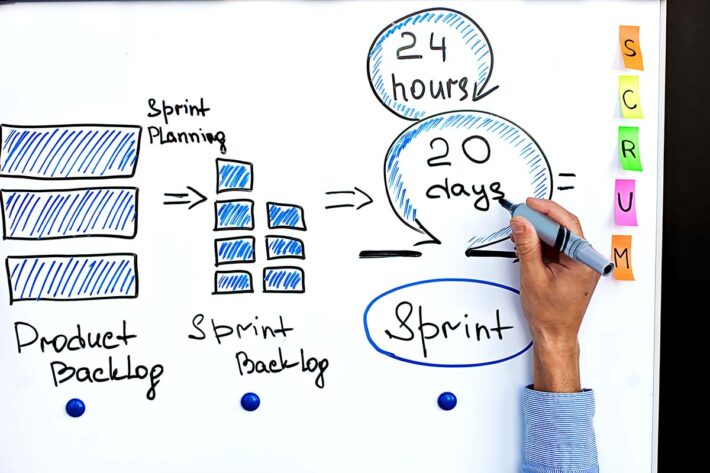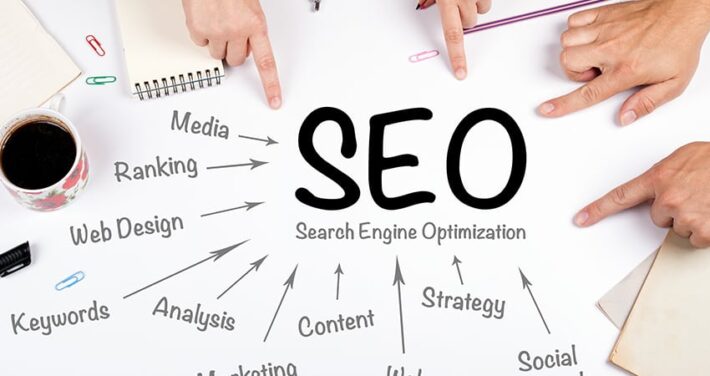Home › Business › Office
End of the Road for the Office? Maybe not – 2021 Guide
Published on:
In recent years flexible working has become more and more commonplace. In the space of less than a lifetime, the expectation of 9 to 5 in your seat daily physical presence has been challenged more and more.
There have been government-mandated initiatives enshrining the right of flexible working for new parents and indeed for any work that can make a valid case. Even if not granted by the office there is the right to be heard and the knowledge that any such request will get serious consideration.
Widespread and high-speed broadband internet access has been another great game-changer as has the growth of online video meeting software such as WebEx for example. The net impact of this has made working from home a realistic option for huge numbers across the country.

Since the beginning of the pandemic, the press often carries headlines around the themes of ‘twenty years of workplace change has been compressed into a matter of months or ‘we will never go back to the way we once worked’. Very recently Alan Jope, the CEO of global consumer giant Unilever, has been quoted as saying that they never anticipate going back into the office full time. Ever. And it is not only Unilever. Company after company have been saying similar things. Google and PWC are among some of the heavy hitters sending the same message.
Add to this the cold, hard truth that for most people searching for a business or service, whether that be a consumer or a hunt for a B2B offering, the first port of call is the internet. There is an expectation that everything you require is out there online somewhere' and with modern search engines it is typically easy to find something that matches our wont. Even the traditional, bricks and mortar supermarkets are expected to have an online presence. Being able to source what you want on the internet is no longer a delighter, it is such an expectation that it is almost considered a right. If you cannot find it online, then it probably is not much of an offering, quite a common mindset.

With all these factors working against the traditional office, it almost seems obvious that it must be doomed as a viable proposition. People are used to the ability to work from home, they can do it easily, there is the social pressure and the perceived wisdom of the large and influential organizations loudly decreeing that they will never return to the old office ways.
The place to find solutions, products, and services is online and generations are growing up knowing no other way to find information than the internet. So, is it all over for the traditional office -environment?
Three words summarise some particularly important concepts without which no business can be truly agile and successful. In today’s highly competitive -environment businesses must be flexible and agile to succeed, they must be able to pivot quickly in response to new customer needs or to more effective platforms and ways of advertising and getting their value proposition out in front of customers. The words are ideation, creation, and celebration.
One problem with the home office is the restricted amount of human interaction. For the process of ideation, brainstorming, and thinking about new things, there is no substitute for being co-located. There is a buzz of energy generated by a group of creative individuals all working close to each other. It is the very foundation of some of the Agile practices embraced by the fast-moving technology sector with methodologies like Scrum.

Teams must be located near to one another to reduce the friction and difficulty of exchanging ideas face to face. There are non-verbal clues to meaning that shortcut a whole host of typed words or video conference calls. There is the ability for the quick water cooler or kitchen chat. Virtual drawing tools are no substitute for the ability to grab a piece of paper or a whiteboard marker and quickly sketch out for peers an idea that has suddenly come to mind. The chance to meet in the kitchen with that colleague you had not planned to meet with may spark the flame of an idea that transforms your whole business. The organization that can come up with the best ideas, faster than their competition has a huge advantage.
Intricately linked to coming up with novel solutions is the process of creation. Once again for the human-animal with its social nature, this is an activity that works best when you can quickly try out thought experiments with your peers and see their reactions. Bouncing ideas off one another always works the best face to face. Two minds are better than one and the more collective intelligence you can swiftly apply to an implementation problem the more likely it is you will have a host of solutions to choose from. When an idea has been arrived at making that work is best done in close collaboration and scheduled video conference calls will just not cut the mustard at times.
The final word is a celebration. It is no secret that a happy workforce is many times more productive than one that is not. It is important to celebrate successes and to simply gather in celebration and acknowledgment that you share a common goal. The group that plays together, stays together. There needs to be someplace where' members of the team can come together, as a collective, in relative security away from outsiders and simply enjoy work, life and their joint output.

So, although the way an office is used may change somewhat it still has a key role to play in an organization’s ability to win. The physical office facilitates the ideation, creation, and celebration that are so important for the survival and success of a business.
While all that is in strong favor of maintaining a physical office there is one factor that has not been addressed and is both a threat and an opportunity. That is the internet. A company without a strong online presence currently has little chance of being taken seriously. Not only is it going to have challenges with credibility but simply being found will be difficult. Amongst all the noise on the internet, whatever good idea, product, or services an organization has only provided value if the end customer can find them.
Absolutely critical is the concept of digital marketing. It is no good simply putting out a couple of local fliers or painting an eye-catching sign. One must go where' the market is and right now the market is online. It is key to have a physical office for the reasons outlined but in order for the ideas developed to generate any revenue or value such things as search engine optimization for the website and social marketing need to be done.

Unless this is the focus of the business it is more effective to spend time working on the core business and developing the offering. Digital marketing is best left to the specialists. A look at such organizations as Smoking Chili Media will highlight the host of things that can be done, paid advertising on a pay-per-click basis, social proof by developing targeted links/connections with places where' people are searching for your offering.
In summary, use your physical office in the way that makes sense in today’s -environment, it needs to be there, and it needs to be providing the three things mentioned. Also ensure that the elephant in the room, the internet, factors into business planning and the company presence there is optimal, eye-catching, and converts visitors to the desired actions.
Share With Your Friends